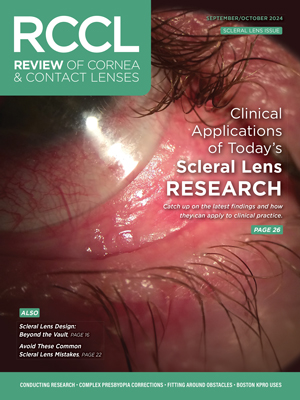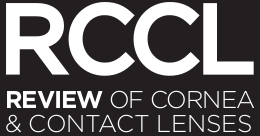 If the adage “If it ain’t broke don’t fix it!” enters into your clinical jargon, you may be missing the boat. With today’s improved contact lens materials and designs, we have the ability to offer patients improved comfort, clearer vision and whiter eyes. Upgrading currently happy patients to the newest contact lens technology serves to enhance their contact lens wearing experience, thereby reducing dropouts and reinforcing the value of our professional care and recommendations.
If the adage “If it ain’t broke don’t fix it!” enters into your clinical jargon, you may be missing the boat. With today’s improved contact lens materials and designs, we have the ability to offer patients improved comfort, clearer vision and whiter eyes. Upgrading currently happy patients to the newest contact lens technology serves to enhance their contact lens wearing experience, thereby reducing dropouts and reinforcing the value of our professional care and recommendations.
We must be equally committed to selecting the most appropriate lens care regimen. In fact, the choice of lens care solution, while often merely a secondary consideration, frequently proves to be an even more important modifiable factor in patient comfort and ocular health response. By understanding the differences in multipurpose solution formulations, we have an additional opportunity to improve the contact lens wearing success of even our currently satisfied patients.
A multi-site open label comparison of OPTI-FREE® RepleniSH® Multi-Purpose Disinfecting Solution (MPS A) to both ReNU MultiPlus* Multi-Purpose Solution (MPS B) and Complete EasyRub* Multi-Purpose (MPS C) Solution was conducted with normal soft (traditional and silicone hydrogel) contact lens wearers. Some 109 patients who had previously used either MPS B or MPS C for at least 30 days prior to the baseline visit were enrolled and assigned MPS A for 30 days of use. Subjective comfort was assessed at Baseline and at Day 30. Patients ranked OPTI-FREE® RepleniSH® higher in instillation comfort, end of day comfort and clearer vision, and reported better satisfaction with their overall lens wearing experience vs. their previous multipurpose solution. In fact, 80 percent of patients reported that they would continue to use OPTI-FREE® RepleniSH® Multi-Purpose Disinfecting Solution.1
Because patients may not realize that a lens care solution can contribute to the comfort of their contact lenses, it is incumbent upon us to reinforce the features and benefits of our prescribed solution at every routine visit. With an estimated two to three million established lens wearers dropping out of contact lens wear each year, the continued satisfaction of our currently non-complaining patients hangs in the balance. Dryness and discomfort, the most commonly cited reasons for patient dropout, may present as a subtle reduction in wearing time at first.2,3 Patients often silently accept this as a normal and expected component of contact wear. Thus, when it comes to our seemingly happy contact lens patients, silence may not be golden. It is critical to probe for changes in the comfort of their lenses, appearance of their eyes and wearing time. Doing so will help to uncover non-compliance with our prescribed lens care regimen, thereby limiting the erroneous association of symptoms with the actual contact lenses themselves.
Lens care solutions are complex and sophisticated products that are formulated to achieve synergy in three key areas: enhanced lens wettability, efficacious lens cleaning and biocompatible disinfection. By proactively upgrading patients to the latest solution technology as in OPTI-FREE® RepleniSH®, patients can experience enhanced comfort with a product that was specifically designed for today’s advanced silicone hydrogel lenses.
This column is sponsored by Alcon.
1. Corbin C, Bennett L, Espejo L, et al. Comfort associated with a marketed contact lens solution. Poster presented at AOA. June 2009. Washington, D.C.
2. Schlanger JL. A study of contact lens failures. J Am Optom Assoc. 1993 Mar;64(3):220-4.
3. Pritchard N, Fonn D. Dehydration, lens movement and dryness rating of hydrogel contact lenses. Ophthalmic Physiol Opt. 1995;15:281-6.


